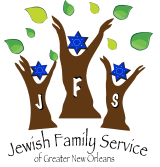 Cara Zajac
Cara Zajac
Social Work Intern
JFS Counseling and Behavioral Health Intern Training Center
Social media can be a dangerous place for survivors of sexual assault. The viral awareness campaign “#MeToo” is gaining traction on newsfeeds across the country. The social movement launches conversations about gender based violence into communities on a personal level. Many survivors have praised the hashtag’s impact in de-stigmatizing discussion of victimization. Others ask if it should be the responsibility of survivors to “out” themselves in supporting the cause.
While each survivor’s experience is unique, the path to recovery is challenged when individuals face post-traumatic stressors. Reading posts with graphic descriptions of sexual violence and aggression can trigger intrusive thoughts or memories about the event. Receiving apathetic responses to reported harassment can create a sense of helplessness. It’s important to establish coping skills for everyday stressors, though sometimes clinical support is necessary.
Post-traumatic Stress Disorder (PTSD) is often observed following crime victimization. PTSD refers to a set of reactions experienced by survivors when they are confronted with reminders or “triggers” of a traumatic event. Common symptoms include:
· sleeping disorders/continued nightmares
· constant flashbacks/intrusion of thoughts
· extreme tension and anxiety
· irritability/outbursts of anger
· non-responsiveness or lack of involvement with the external world
· prolonged feelings of detachment or estrangement of others
· memory trouble
These responses may overwhelm daily functioning. With support from the community and clinical intervention, PTSD is highly treatable. Survivors can be empowered to regain a sense of normalcy and safety. Some survivors become advocates, while others keep the experience private. Healing can occur by sharing an experience, but the survivor should determine the best avenue for doing so.
The #MeToo campaign reminds us you are not alone if you have experienced trauma. Jewish Family Service offers counseling for individuals seeking a path of recovery. Our staff is trained in research proven methods shown to improve quality of life for survivors. For more information, call our office at (504)831-8475.
← Blog